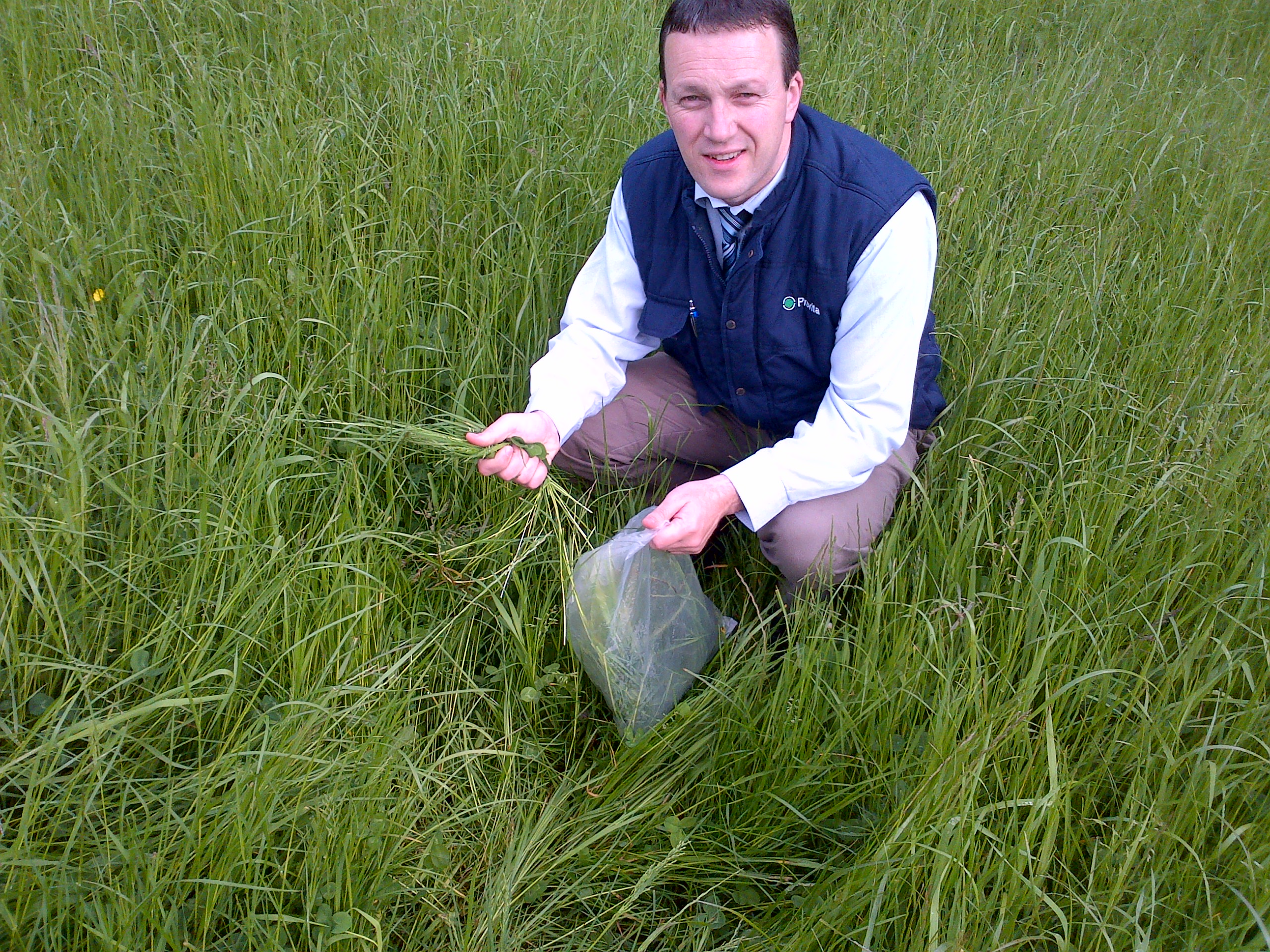The current hot spell is providing farmers and contractors with an excellent opportunity to make first cut silage of the highest quality, according to Provita’s Tommy Armstrong.
“Most swards are now at the right growth stage for cutting. Sugars are high and with dry matters also high grass nitrogen levels are not a problem,” he added.
“All of this adds up to the perfect scenario, from a silage making perspective, with one possible exception.
“Grass that is cut with a mower conditioner and spreader or tedded and then left to wilt for a full 24-hours are producing dry matters of around 40%. Normally dry matter will rise 1% every 2 hours but its currently rising around 1% every hour. Uncut grass tests are coming back at 16% to 20% DM If aiming for 25% to 30% DM farmers should consider reducing wilting time.
“Forages of this nature are very prone to secondary fermentation at feed out. This can result in tremendous losses and, when it does happen, represents a significant financial drain for the farms concerned. This type of crop can be full of micotoxins.”
Armstrong pointed out that high dry matter forages must be rolled continuously as they are ensiled.
“This helps to maximise consolidation levels throughout the pit, thereby reducing oxygen levels within the forage,” he commented.
“Oxygen is the key driver behind secondary fermentation. Applying Provita’s Advance+ inoculant will also act to reduce this process. With its unique 3rd acetic acid strain, it will have an anti-micotoxin effect which will double the stability time at feed out. It will also work to improve the nutritional feeding value of silage as a whole, which is worth an estimated benefit equal to 2kg of meal per head per day giving a ROI of at least 4 to 1.
The Provita representative attended this week’s Open Meeting at AFBI Hillsborough.
“The event brought home the essential change in attitude that is needed to maximise production from forage,” he said.
“Grazed grass and high quality silage are the cheapest, and most cost-effective, feeds that we can offer ruminant livestock.
“The reality is that farmers right across Northern Ireland have been and can make exceptionally high quality silage, which will help make a big contribution to reducing costs next winter.
